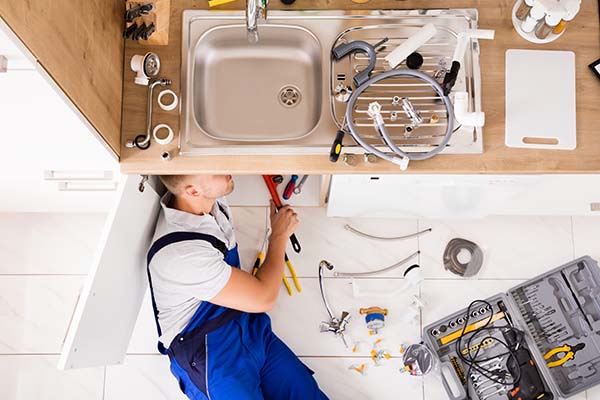Does the touch of porcelain on your skin send electricity up your spine? Do you find the smell of waste more bearable than your peers? Are neither of those things true but you want a promising career with good pay in an industry that isn’t yet employing more robots than humans? Then plumbing might be right for you! Here’s our guide to becoming a plumber, from apprenticeship and training to progressing your career.
First Steps
The first thing you should do to become a plumber is get a pre-apprenticeship qualification in the form of a Certificate II in plumbing. Some, but by no means all, of what this Certificate will teach you are:
- safe working conditions and basic emergency life support
- plumbing tools, equipment and materials
- technical drawings, numeracy and calculations
- principles of sustainability
- identifying employment opportunities in the plumbing industry
While you may be itching to get straight into your apprenticeship (and that is an option), getting your Cert II could see you finishing your apprenticeship up to six months earlier!
Doing the Hard Yards: Apprenticeship and Cert III
The next step in becoming a registered plumber is earning your Certificate III in plumbing. However, you can’t do your Cert III without an apprenticeship, so these steps will always be combined. Your apprenticeship and Cert III training will be tough – you will be working hard for pretty low wages while doing coursework.
Remember, whoever gives you your apprenticeship will also pay your TAFE fees, ensure your Workers’ Compensation insurance, pay your super, and give you annual leave. When it’s over, you’ll be ready to move ahead in your career, having gained extensive on-the-job experience and learned about specialist plumbing work in water, sanitary, drainage, mechanical services, roofing and gas services.
Continuing Your Journey
Much like getting your car license, you are now a plumber on the equivalent of your P-plates: a journeyman plumber. That means you can work for another licensed plumber, but you can’t run your own business yet. For that, you’ll need to work as a journeyman for two years and complete the more advanced Certificate IV in plumbing through TAFE.
Once you have that under your belt, you can become an independent contractor, free to operate your own plumbing business or work for an existing company as a licensed plumber.
Climbing the Golden Throne
If you are the ambitious type, there’s no need to stop there. Mind you, even just being a run-of-the-mill plumber offers decent pay, with a median starting salary of around $55k. Qualified plumbers also boast a full-time employment rate of 92.5% with heaps of jobs in construction, public works, safety and transport, and more.
There’s no need to stop there:
Climbing the Ranks: Gasfitter
You can train up to become a gasfitter, further increasing your chances of employment and pushing up your wage. Gasfitters earn around $1,200 per week and are in constant demand.
Lead Plumber or Foreman
Once you’ve gained enough experience and mastered all types of plumbing, you’ll be in a position to become a lead plumber or foreman on larger plumbing projects. This means you’ll oversee the whole show and earn more money – the median salary for lead plumbers is close to $70,000.
Master Plumbers
Once you have enough experience and training under your belt, you can apply to become recognised as a Master Plumber. This will provide the ultimate seal of quality to help you draw customers and also push the median salary you can expect up to more than $74,000.
Get in Touch
Want to talk to a master plumber today about your work opportunities? Or do you simply need regular plumbing maintenance? Get in touch with G.F. James Plumbing today on 02 9649 1099 or enquire online.






